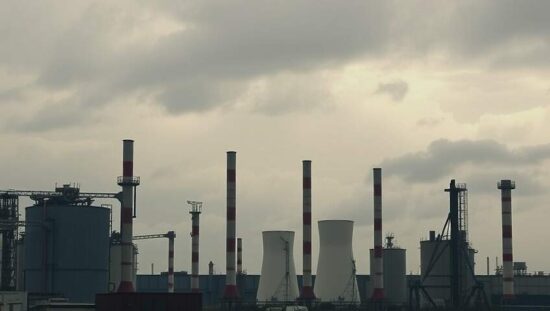The German chemical industry is facing an internal rift over the EU’s increasingly stringent Emissions Trading System (ETS-1), with the leadership of the powerful Verband der Chemischen Industrie (VCI) publicly urging caution against overly aggressive criticism of the policy. VCI President Markus Steilemann, in remarks published Thursday, cautioned industry executives against emotionally charged pronouncements, stating they do not necessarily contribute to a productive debate.
The internal debate ignited earlier this week when Christian Kullmann, CEO of specialty chemicals giant Evonik, openly called for the abolishment, or at least a radical overhaul, of the EU’s carbon certificate trading system. This sentiment was echoed by BASF CEO Markus Kamieth, who voiced similar concerns during the presentation of his company’s quarterly results.
Under the EU’s ETS-1, industrial facilities are obligated to purchase emissions allowances for greenhouse gas emissions. Historically, a portion of these allowances were distributed freely to companies, while the remainder were acquired through market trading. Revenues generated from the system are largely directed towards climate protection initiatives.
The “Fit for 55” package, a cornerstone of the EU’s climate agenda aimed at limiting global warming to just above 2 degrees Celsius, has resulted in a significant reduction of the free allocation of these allowances. To mitigate potential competitive disadvantages, the EU also implemented the Carbon Border Adjustment Mechanism (CBAM), essentially a tariff on carbon-intensive imports.
Industry leaders within the chemical and steel sectors have expressed anxieties regarding the escalating costs associated with these measures. While Steilemann acknowledged the concerns, he strongly dismissed calls for a complete dismantling of the ETS, labeling them “radical” and misguided. He highlighted the system’s demonstrated effectiveness, pointing to a 50% reduction in emissions from the chemical industry despite increased production levels.
However, Steilemann conceded that adjustments to the current framework merit consideration, advocating for targeted refinements rather than a complete abandonment. He proposed a system allowing continued free allocation of certificates to companies facing particularly challenging and expensive transitions towards climate-friendly manufacturing processes. The remarks underscore a growing tension within the German chemical industry: a desire to acknowledge economic realities versus an obligation to align with increasingly ambitious European climate goals and the potential political fallout of either course of action.





